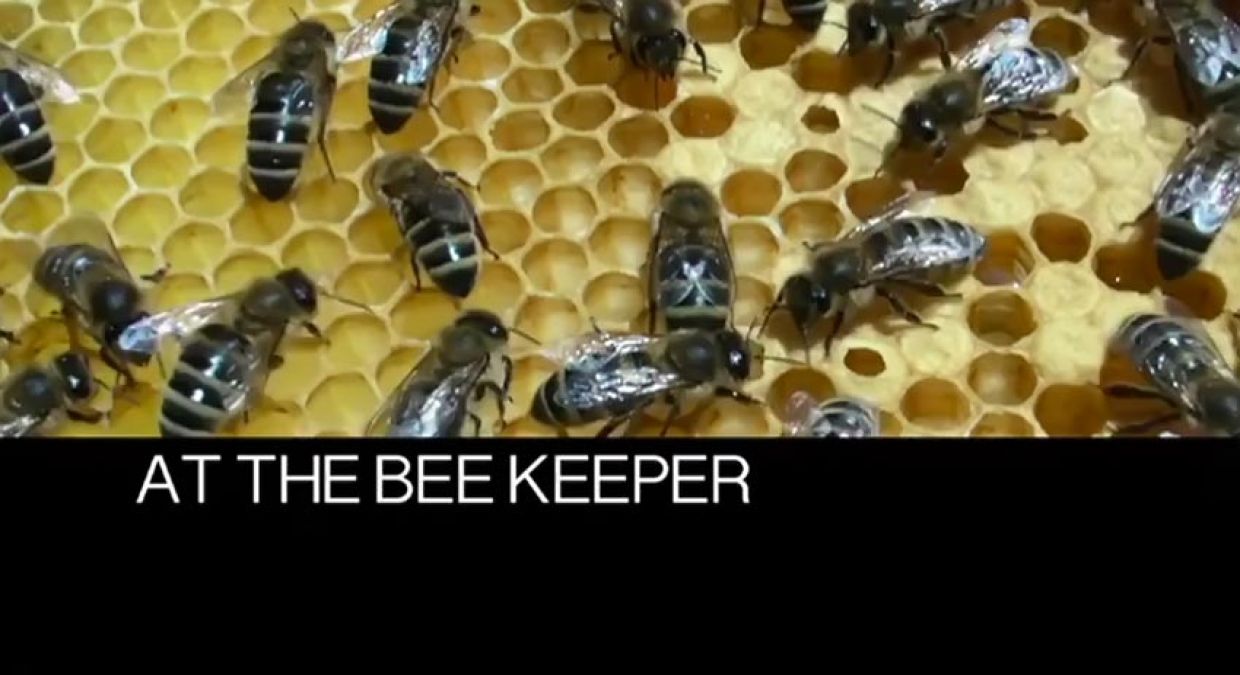At the Beekeeper

Meet Alfred, beekeeper in Henndorf (translated Chicken Village). Alfred has been beekeeping most of his life. While some people enjoy helping animals or working in a zoo, Alfred loves his bees. Check out a short introduction as we go behind the scenes to see what it takes to harvest honey. In the video we're surrounded by many bees with no protection or beekeeper suit. A drop of clove was given to us to spread the scent from our upper body to the side of our neck. It turns out, bees do not like the scent of clove and will not land on us. Each hive has an estimate of 30,000 - 50,000 bees. In this bee hut, there are twelve hives. You can imagine how many bees are surrounding us and we came out with absolutely not one sting. How amazing!
We also get a chance to chew on wax that is filled with honey -- what a delicious experience! Every year we go to Alfred for honey. We know the honey is pure in this region and do not have to worry about pesticides or GMO's. Honey is as good as the surrounding environment.
Everyone uses honey at some point of time in their life -- whether you're a regular supporter of honey or you are reducing your intake of refined sugar, honey has a lot of benefits. Some include; providing the body with many minerals and vitamins, easier to digest, boost immunity, and fight bacteria. Even honey is used for remedies such as sore throats and colds, it promotes healing in the body, and makes a great source of energy.
Honey can even help with allergies. Because pollen is present in honey, you can eat your local honey to reduce your hay fever and allergy symptoms. Even better, you can buy bee pollen from your local beekeeper and consume it on a regular basis. Bee pollen is full of vitamins, minerals, and enzymes.
Many natural questions like; Is honey raw? How is honey harvested? Where do the bees collect from to make honey? What 2 other parts come automatically from harvesting honey? All of these questions will be revealed in the video.
We hope you will enjoy the video and learn something new! Next time you buy your local honey, you'll know what work went into harvesting that honey.
Feel free to leave comments or questions below. Happy Honey!











